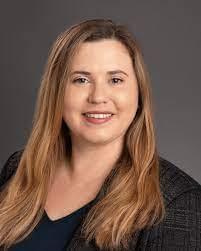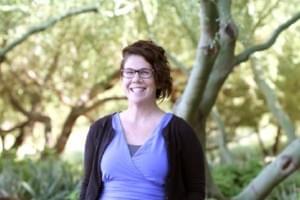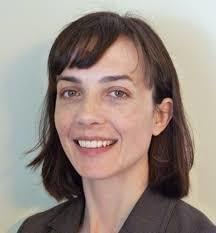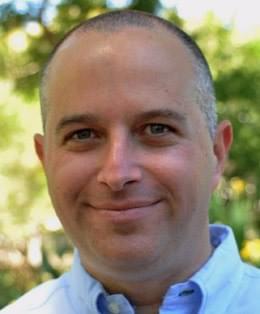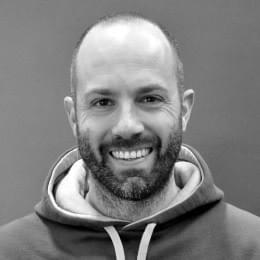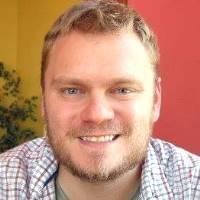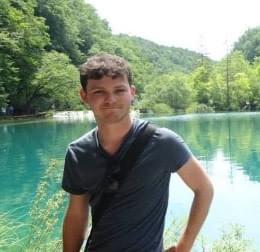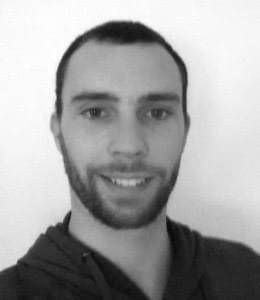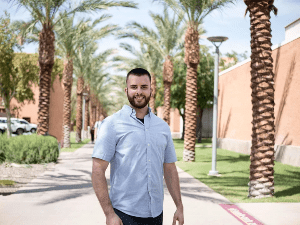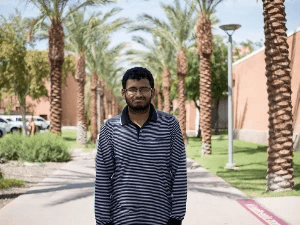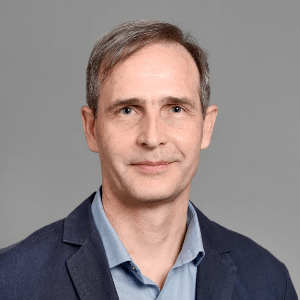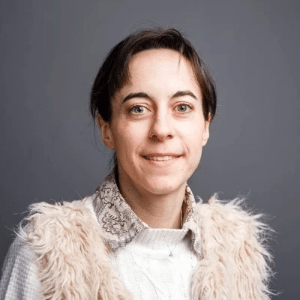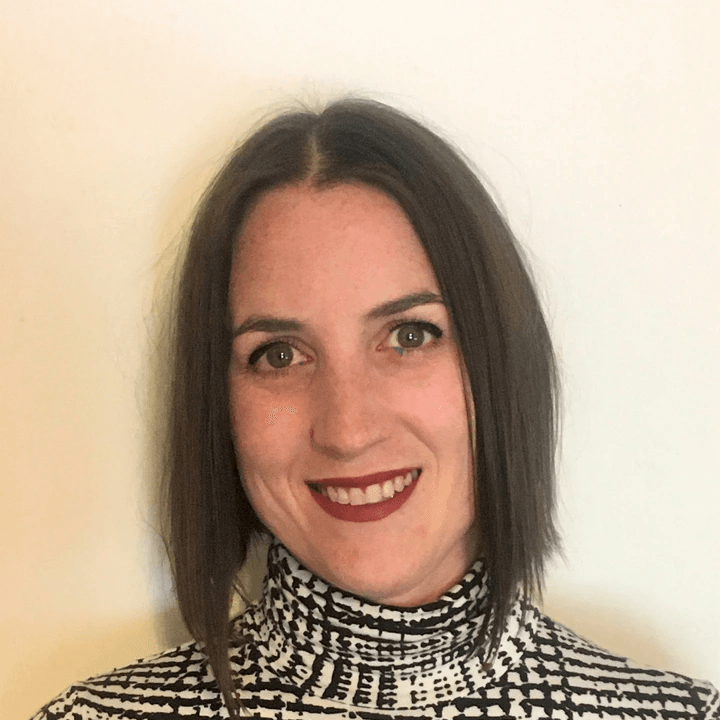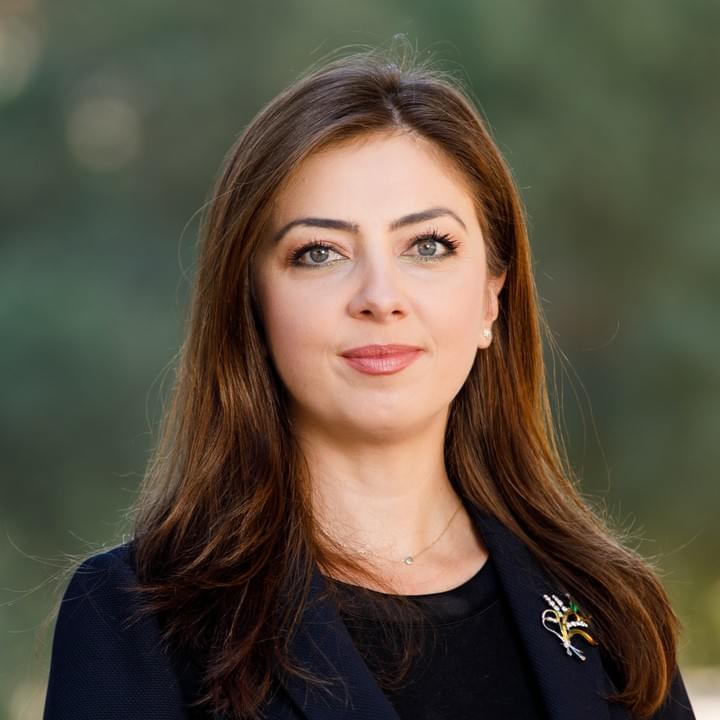

Team
Diversity. Collaboration. Engagement.

From left to right:
Pamela Winfrey
Cristina Baciu
Jessica Ayers
Angelo Fortunato
Shrinath Narayanan
Andres Munoz
Diego Guevara Beltran
Athena Aktipis

Athena Aktipis, Ph.D
Lab Director & Principal Investigator
Athena Aktipis is an Associate Professor in the Department of Psychology at Arizona State University and co-Director of The Cooperation Science Network and The Human Generosity Project. She studies cooperation across systems from human sharing to cancer. She is the founder of Zombified Media; host of the podcast, Zombified, and author of the book from Princeton University Press, The Cheating Cell: How evolution helps us understand and treat cancer. When COVID-19 was on the verge of becoming a pandemic, she started the Cooperation in the Apocalypse project to better understand how crises affect cooperation, interdependence and other social behaviors. She is passionate about building interdisciplinary teams to tackle tough questions, empowering students to learn about the topics they are most curious about, and leveraging cooperation theory to improve our universities and the broader communities in which we are all embedded. For more information about Dr. Aktipis, please visit her website.

Ona Wang, M.A.
Doctoral Student
Ona Wang is a Sociocultural Anthropology PhD student in the School of Human Evolution and Social Change at Arizona State University and researcher in the Cooperation and Conflict Lab. Ona earned a B.S. in Psychology and Sociology from University of Illinois Urbana-Champaign and M.A. in Conflict Resolution and Coexistence from The Heller School for Social Policy and Management at Brandeis University. Ona’s transdisciplinary research examines the roles of human behavior, groups, cultures, and systems in restorative justice, conflict, and cooperation.

Gissel Marquez
Doctoral Student
I am an evolutionary biologist and wet lab scientist at ASU, working on attaining my Ph.D. in evolutionary biology. During my undergrad, I studied biomedical sciences and began researching in 2018. My research focuses on cooperation across different topics such as kombucha, the microbiome, cancer, and mental health.

Pamela Winfrey, MA, MFA
Scientific Research Curator
Pamela explores the relationship between the arts, the humanities, and the sciences by curating and creating artworks, experiences, and exhibitions. Her background is in new media, performance, and installation art and she is also a working playwright, novelist, and screenwriter. Learn more about Pamela by visiting her website.
Alumni

Diego Guevara Beltran, Ph.D.
Postdoc, University of Arizona
Dr. Guevara Beltran was a doctoral student in the lab. He graduated in the Spring of 2023 and went on to become a post doc at the University of Arizona. Learn more about Diego by visiting his website.

Jessica Ayers
Assistant Professor, Boise State University
Dr. Ayers was a doctoral student in the lab. She graduated in the Spring of 2022 and went on to become an Assistant Professor at Boise State University. Learn more about Dr. Ayers and her work by visiting her website.

Amy Boddy, Ph.D
Associate Professor, University of California, Santa Barbara
Amy Boddy was a post doctoral fellow in the Aktipis Lab between 2014-2016. She received her Ph.D. in Molecular Biology and Genetics from Wayne State University, School of Medicine. Dr. Boddy works on the applications of life history evolution to cancer. This includes both cellular evolution in neoplams and the role of life history evolution in cancer suppression. She is now an Assistant Research Professor at the Biodesign Institute at Arizona State University. Learn more about Dr. Boddy by visiting her website.

Helen Wasielewski, Ph.D
Former Post-doctoral Fellow
Dr. Wasielewski earned her Ph.D. in Evolutionary Anthropology from Rutgers University and works on understanding the relationships between human gut microbiota and eating behavior. She specializes in using laboratory experiments to understand food choice and intake given the evolutionary interests of gastrointestinal endosymbionts and their human hosts. Her work focuses on understanding the health implications of the bidirectional relationships between gut microbiota and behavioral variables including dietary intake, eating behavior, and social transmission. Dr. Wasielewski’s orientation to these topics is informed by work in evolutionary biology, non-human primate social behavior, and hominin evolution. Learn more about Dr. Wasielewski by visiting her website.

Daniel Sznycer, Ph.D
Assistant Professor, University of Montreal
Dr. Sznycer was a post doctoral fellow on the Human Generosity Project, in the Aktipis Lab. He received his PhD from University of California, Santa Barbara and is an evolutionary psychologist conducting research on the psychology of sociality. He combines methods, theories, and concepts drawn from the cognitive sciences and evolutionary biology to explore and map the evolved design of social emotions and their underlying motivational systems. He has multiple lines of cross-cultural evidence on shame, pride, compassion, and envy, and their roles in altruism, cooperation, social exclusion, and conflict. The methods he uses include experimental economic games, decision-making tasks, priming methods, cross-cultural and ethnographic data collection, large-scale representative surveys, and Anthropometry. Learn more about Dr. Sznycer by visiting his website.

Marco Campenni, Ph.D
Research Fellow, University of Southampton
Dr. Campenni was a Ph.D. fellow on the Human Generosity Project in the Aktipis lab. He received his Ph.D. in Cognitive Sciences from the University Tor Vergata, Rome, Italy. His work is centered on modeling the evolution of cooperative behavior, using different modeling techniques and tools (agent-based modeling, evolutionary game theory, GIS data). His research activity is focused on both theoretical and data informed models of social behaviors and dynamics of animals from an evolutionary and cross-species perspective. Learn more about Dr. Campenni by visiting his website.

Alex May, M.S
Research Technologist
Alex is an evolutionary biologist with an interest in examining the emergence of cooperation and how it can break down across multiple systems, including microbes, plants, and cancer. His previous work included elucidating the role of cheating bacterial symbionts in the rhizobia-legume mutualism, examining the benefits of multicellularity in cancer cell clusters via artificial selection, and is currently developing the fermented drink ‘Kombucha’ as a model of social behavior in yeast and bacteria.He received his B.Sc. of Biology from McMaster University in Canada, and his M.Sc. in Ecology and Evolution from the Free University of Amsterdam in the Netherlands.

Scott Claessens
Postdoctoral Fellow
University of Auckland
Scott is a postdoctoral fellow at the University of Auckland where he is studying how individual differences such as religiosity, political beliefs, and life-history correlate with cooperative behavior and the costly punishment of free-riders.
Scott was a visiting scholar and completed a five-month internship with the Human Generosity Project. To learn more about Scott, visit his website.

James Medina
Doctoral Student
Washington University in St. Louis
James was a research assistant in the Aktipis Lab between 2015-2016. He received his bachelor's degree with majors in biology and neuroscience from Oberlin College in 2015 and is now a doctoral student at Washington University in St. Louis in the The Queller/Strassmann Research Group.

Olmo van den Akker
Visiting Scholar
Olmo van den Akker is currently doing his Research Master in Psychology at the University of Amsterdam. As part of this degree, Olmo has completed a research internship at the Human Generosity Project. In addition, Olmo is in the process of finishing his master’s degree in Behavioral Economics and Game Theory (also at the University of Amsterdam). His interests include evolutionary psychology, human cooperation, scientific methodology, and network analysis.

Andres Munoz
Former Graduate Student
Andres was a Graduate Student Researcher in the Department of Psychology at Arizona State University. He obtained his bachelor’s degree with a major in psychology and a minor in political science
from DePauw University. He is broadly interested in integrating an evolutionary framework with cognitive science methodologies to address
questions about human social cognition and behavior. Specifically, Andres is investigating the cognitive mechanisms underlying cooperation, rule-breaking, and risk management.
Shrinath Narayanan
Former Research Technician, Kombucha Project
Shrinath received a bachelor degree (B.Tech) in Biotechnology from Anna University and a master degree in Cell and Molecular Biology from University of Texas at Dallas, and he is trained as a molecular biologist.Ph.D.During his masters, he worked with Dr.Nikki Delk on examining the effects of cytokines on breast cancer cells with respect to its receptor status. Since then, he has started to develop strong interests in the evolutionary perspectives of cancer development and multicellularity.

Angelo Fortunato
Former Postdoctoral Fellow
Dr. Fortunato’s research focuses on cancer evolution, cancer biology, evolutionary biology and molecular genetics. He is working on human cancer and development of novel model organisms in cancer research.
To learn more about Dr. Fortunato, visit his webpage.

Steffi Kapsetaki, Ph.D
Former Postdoctoral Fellow
I’m Steffi. People also call me Stephanie, or Stefania, as written in my passport. This is how I go through life, by changing identity and crossing barriers. I’m a (r)evolutionary scientist, classical music performer, and…
...a twin. I have a lifetime companion, but also... a food-absorbing friend! Coming out lighter than my sister was not easy! This may have triggered my interest in conflict and cooperation across life. Through my education at Oxford, I mastered the fields of social evolution and the evolution of multicellularity. Inside my multicellular body, I see identical cells sometimes fighting foreign cells for food. When foreign cells live with me forever, I’m called a chimera. Did I mention that I might be in my twin?! When they divide faster than other cells, they may possibly become cancer. As a Postdoctoral Researcher at Arizona State University, I’m testing this possibility in every creature on our planet. Learn more about Steffi on her website.
Nicole Hudson
Former Research Assistant
Nicole helped to organize and manage the undergraduate lab. In addition, she provided support to groups of interdisciplinary researchers working to understand complex social phenomena such as coordination among human groups and complex biological phenomena such as why we develop cancer. Her current research interests include competition behaviors and how we can utilize evolutionary perspectives to understand and mitigate their negative impact on group successes in addition to individual mental health.

Cristina Baciu, Ed.D
Former Administrative Director of Research Program Manager
Cristina served as an Administrative Director & Research Program Manager, collaborating with interdisciplinary teams at the intersection of cooperation and cancer evolution research at Arizona State University. She is the Co-Founder and Co-Director of the ACE Scholars Program and the Cooperation Scholars Program, training opportunities for undergraduate students that combine scientific mentoring with career and professional development sessions. Cristina holds two bachelor's degrees (economics and psychology) and a doctorate in educational leadership in higher education. Both practice and research-wise, Cristina is interested in (e)-mentoring undergraduate college students, barriers to students’ success, and the intersection between technology and higher education. Learn more about Cristina by visiting her website.
AktipisLab © 2022







